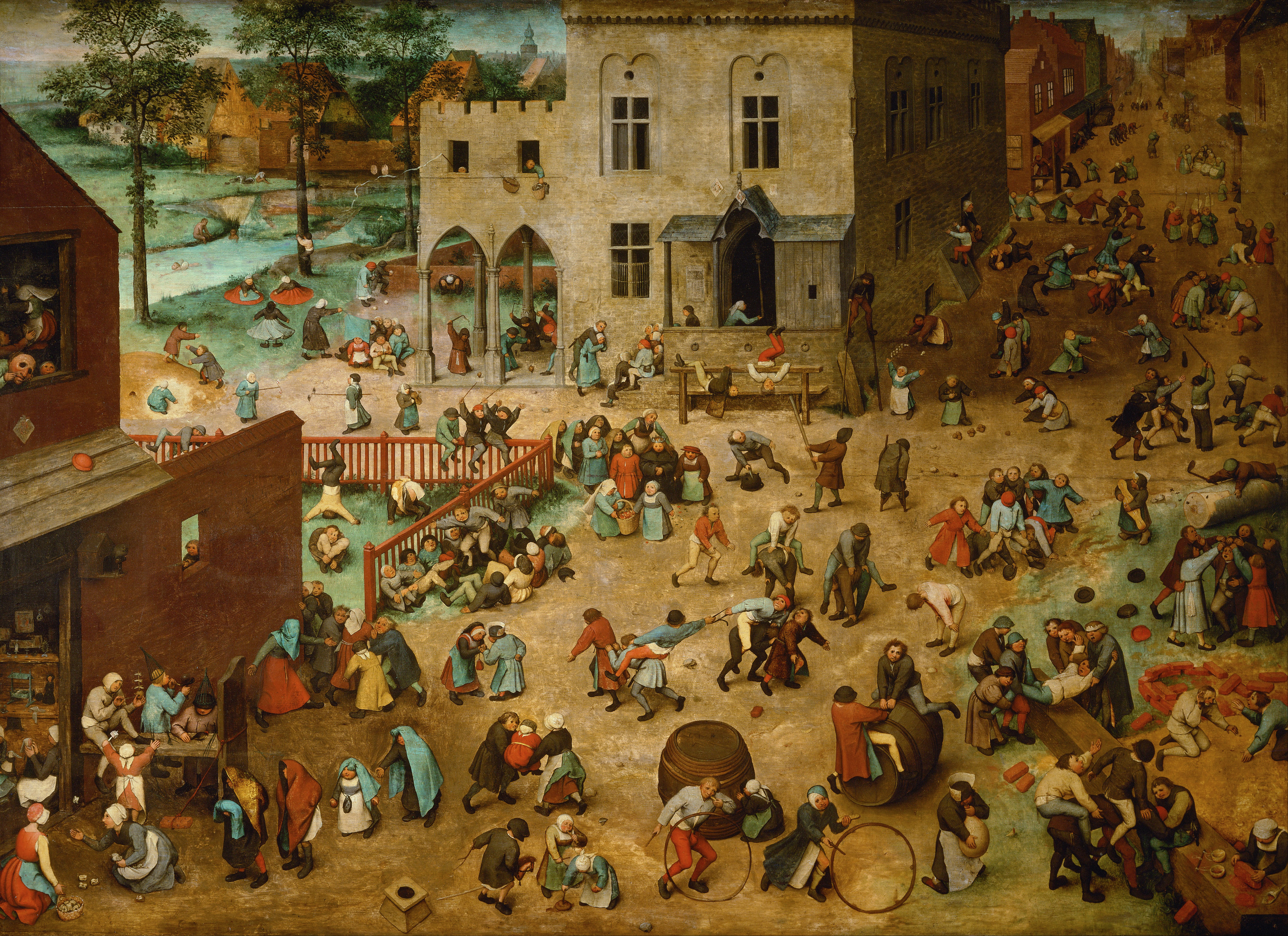The most famous painting of children at play is “Children’s Games,” the 1560 work by Pieter Bruegel the Elder of a town square in which children from toddlers to adolescents (scholars have counted 246) are playing a range of timeless games. There are dolls and marbles and tiddlywinks, ball games and climbing games and riding games (scholars have counted 90 or so). The children are the only ones in town, and their activities offer a kind of taxonomy of play.
But some worry that our current culture is less friendly to play, and that children may not be getting the chance to explore all its possibilities. To try to address that, the American Academy of Pediatrics released a policy statement on Monday titled “The Power of Play: A Pediatric Role in Enhancing Development in Young Children.”
The statement characterizes play as intrinsically motivated, involving active engagement and resulting in “joyful discovery.” It summarizes extensive developmental and neurological research on play, and tries to tease out some of the specific developmental discoveries in peek-a-boo (repetitive games provide “the joy of being able to predict what is going to happen”) and Simon Says (builds impulse control and executive function). It also says that doctors should encourage playful learning for parents and infants by writing a “prescription for play” at every well-child visit in the first two years of life.
It’s a values statement because many who study play feel that it is under siege, even as new research emphasizes its importance in children’s development.
“We’re in a climate where parents are feeling like they need to schedule every minute of structured time, and 30 percent of kindergartens offer no recess,” said Dr. Michael Yogman, chairman of the A.A.P. committee on psychosocial aspects of child family health and the lead author of the statement. To some, he said, “play is seen as irrelevant and old-fashioned.”
Dr. Benard Dreyer, the director of developmental and behavioral pediatrics at New York University School of Medicine and a past president of the American Academy of Pediatrics, said, “The old saying is, play is the work of children. Play is the way they learn and the way they develop. It’s important to understand how all of us, and especially parents, can encourage play.”
“Kids develop 21st-century skills in play,” said Dr. Yogman, who is chief of the division of ambulatory pediatrics at Mount Auburn Hospital in Cambridge, Mass. These include social and emotional skills and executive function, “skills that are crucial for adults in the new economy, that help them collaborate and innovate.”
– By Perri Klass, M.D.
Read more: Let Kids Play
Image Source: Google Cultural Institute








Leave A Comment